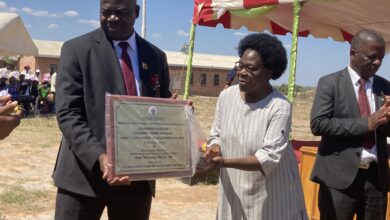
The use of foreign currency in Zimbabwe for domestic transactions remains in place in both the formal and informal sectors six months since the government outlawed the system.
On June 24 last year the government through Statutory Instrument 142 of 2019 banned the multicurrency regime which had been operational for a decade following the ditching in 2009 of the inflation-ravaged Zimbabwe dollar.
The ban meant a return to mono currency – exclusive use of RTGS dollars (bond coins, notes and electronic balances).
Tourism players and a few other sectors of the economy were allowed to continue charging forex while duty for importing vehicles remained pegged in hard currency as well.
While supermarkets and other big retail shops immediately complied with the government directive and began pricing goods in the local currency, some businesses continued trading in forex but secretly.
What has been happening is that while big shops have been selling in local currency, prices remained an equivalent of what they used to be in the US dollar, which explains why they have not been stable.
Some pharmacies, for example, have drug prices for both the US dollar and local currency, and in most cases, those who pay in local currency are overcharged.
Other shops while allowing customers to pay in forex, they receipt them in the local currency equivalent.
Informal trading of assets such as vehicles, houses, residential and commercial stands is in forex, with no one ready to accept the fast depreciating local currency.
Even lobola is paid in hard currency.
In Matabeleland South where the local currency is scarce people trade in the South African Rand in full view of law enforcement agents.
Economist, John Robertson said lack of trust in the local currency was forcing people to opt for other currencies.
“There is a lack of trust in the Zimbabwean dollar and people are opting for currencies whose value they trust; the Zimbabwe dollar is not stable,” said Robertson.
He, however, said it was still too soon to assess the impact of the ‘return to local currency’ considering the subdued manufacturing sector and failing agriculture.






